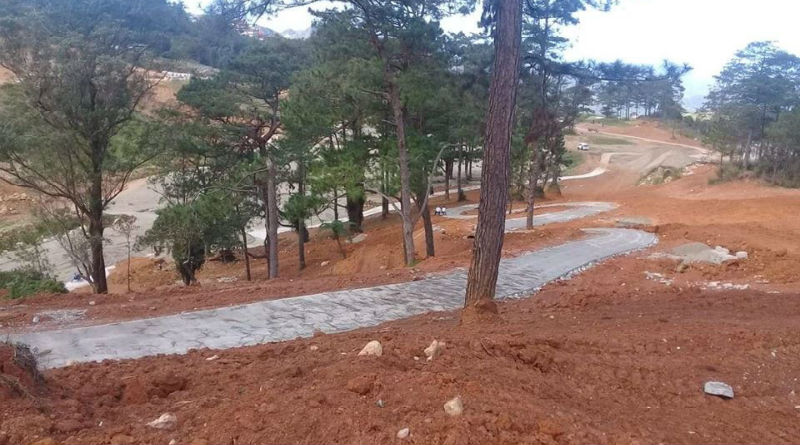BAGUIO CITY – The Regional Trial Court (RTC) Branch 5 denied the affirmative defences presented by Sta. Lucia Realty Development Corporation and the Cordillera office of the Environmental Management Bureau (EMB-CAR) on the environmental case that was filed by the heirs of Tunged against the corporation for having allegedly cut a number of trees within their claimed property without the necessary permit from the concerned government agency.
In an 11-page order dated February 14, 2020, Judge Maria Ligaya V. Itliong-Rivera denied the motion of the corporation for the acceptance to its affirmative defenses and directed the referral of the environmental case for mediation between the plaintiff and the private defendants.
Further, the Clerk of Court was directed to make the necessary referral of the environmental case to the Philippine Mediation Center for mediation.
Court records showed that the heirs of Tunged raised matters pertaining to the Environmental Compliance Certificate (ECC) to Sta. Lucia wherein the company argued that the ECC was issued for the development of its Pinewood Golf Course and Country club project which had long been completed and said ECC could not have covered the corporation’s activities subject of the case.
However, the Tunged heirs argued that in the case that the ECC applies, there exists a violation of the general conditions set forth.
The plaintiff pointed out that the issuance of the ECC is in violation of the implementing rules and regulations of Presidential Decree 156 as the project had no social acceptability.
The plaintiffs assailed the acts of Sta. Lucia in erecting a concrete hallow block fence at the contested property pursuant to a fencing permit issued by the City Building and Architecture office considering that the fence was erected on the contested property and not within the property located at Vicente Puyat St. as stated in the said permit.
The EMB-CAR stated that the plaintiffs did not comply with the pertinent provisions of law in the filing of the case because it did not state the names of the persons they represent and they likewise did not state in the verification or certification that they are filing the case in a representative capacity.
EMB-CAR argued that because of the flaw in the verification or certification, the complaint against the developer on the cutting of trees and the put up of the concrete fence ought to be considered as an unsigned pleading, hence, a mere scrap of paper.
The court stipulated that the EMB-CAR’s contentions might have been premised on their assertion that the case is brought as a citizen’s suit but nowhere in the complaint was it stated that it is a citizen’s suit and that plaintiffs filed the case as representatives of the heirs of Tunged principally because of their claim that their rights as indigenous peoples under Republic Act 8371 were violated by the corporation and the government agency.
The order stipulated that even with their allegation that the corporation’s acts violates the provisions of PD 186 does not make the action a citizen’s or class suit and as the same is not a class or citizen’s suit, EMB-CAR’s objections to plaintiffs capacity to bring the action for lack of proper representation is misplaced.
The order pointed out that the EMB-CAR also argued that the complaint was improperly designated as an environmental case but the said matter is not, however, a reason to dismiss the complaint and that the law clearly states that if the compliant is not an environmental complaint, the presiding judge shall refer it to the executive judge for re-raffle and as of he said case, it does not have to be referred for re-raffle because the branch is not only an environmental court but is also a regular court.
Moreover, the order added that EMB-CAR claimed that the plaintiffs are guilty of forum shopping because they earlier filed a case before the agency against the corporation and that the cuae of action as well as the relief prayed for are substantially founded on the same facts and circumstances but the same is not so.
On the claim that plaintiffs did not exhaust administrative remedies before they filed the environmental case, However, the court asserted that the same pertains to matters relating to the ECC and it stressed that plaintiffs have other causes of action for which no administrative remedy is provided.
By Hent













